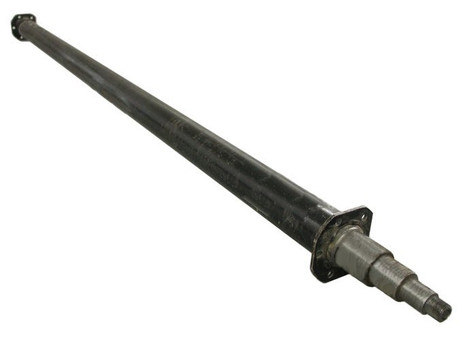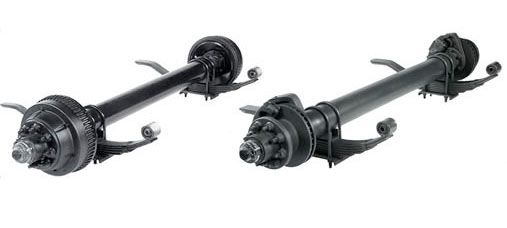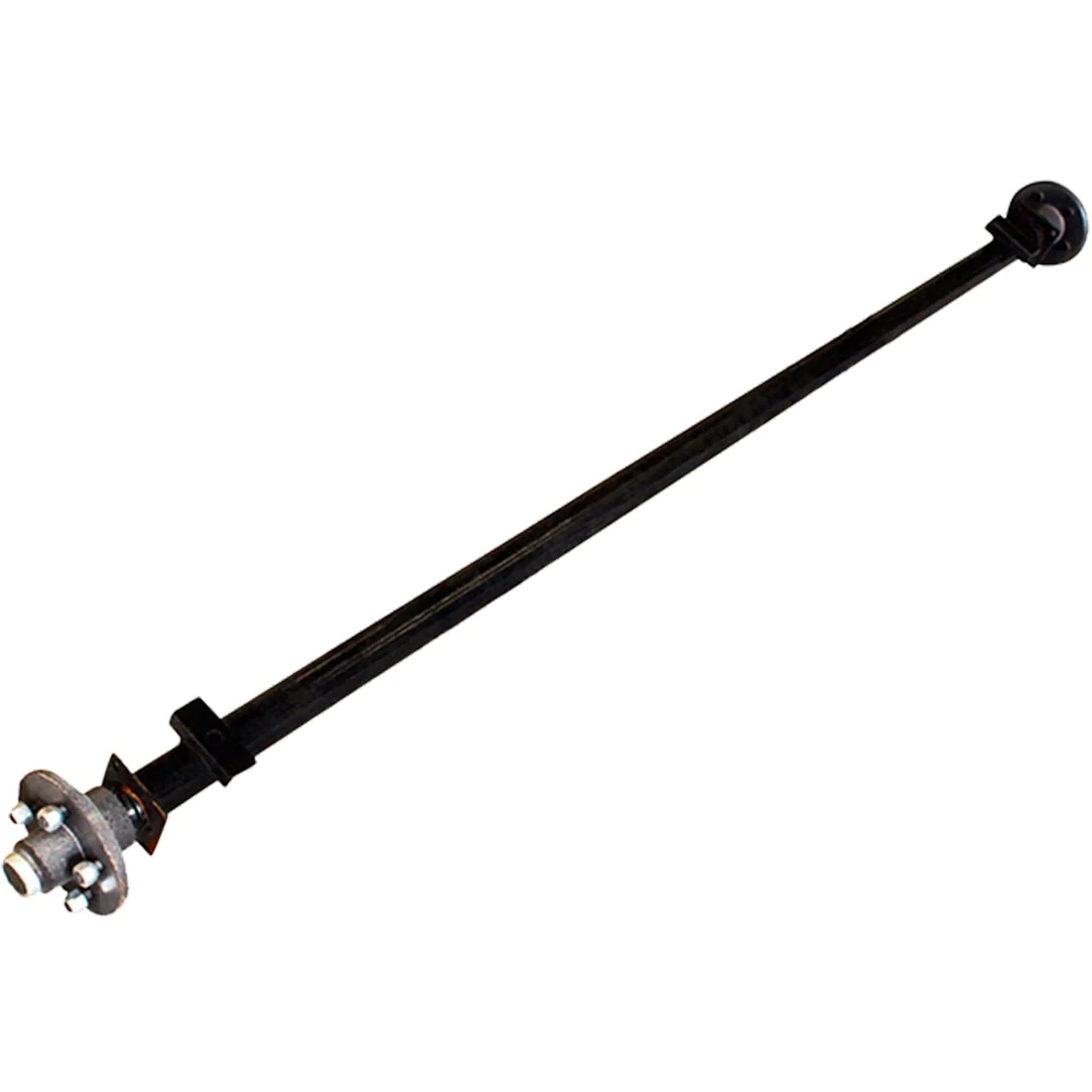Product Description
American Semi Trailer Oil Lubrication Axle for Semi Trailer Parts
Detailed Photos
Advantages
Company Profile
Located in Xihu (West Lake) Dis. Industrial Zone, ZHangZhou was evaluated as the National High-Tech Enterprise In 2014, and our trademark was rated as ZheJiang Famous Brand. We have built an engineering technology research center for transport vehicle suspension system of HangZhouCity. Our company has 12 items of National patent technology, and undertook a number of provincial and municipal projects, A number of our products were rated as municipal and county science and technology progress award. In March 2016, as the sponsor, ZHangZhou united 27 enterprises with ZheJiang University of Science and Technology, ZheJiang University of Technology, ZheJiang Jiaotong University and other 5 universities, to set up a intellectual property protection alliance for special vehicle industry in ZheJiang province , playing a great role in ZheJiang special vehicle industry to promote scientific and technological innovation, intellectual property protection.
There are more than 100 sets variety of production and processing equipments in our company, including suspension automatic welding system which save human resource and improve production efficiency, while significantly improve products quality. ZHangZhou has passed ISO9001, ISO140001, OHSAS18001 management system certification and the standardization of intellectual property management certification. We have integrated testing equipments in a testing center, with advanced testing methods, we can control every link from raw materials, semi-finished products to finished products, to ensure that our customers can get consistent quality products.
Packaging & Shipping
| After-sales Service: | High Quality |
|---|---|
| Condition: | New |
| Axle Number: | 2 Axle, 3 Axle, 4 Axle |
| Application: | Trailer |
| Certification: | CE, DIN, ISO |
| Material: | Steel |
| Samples: |
US$ 700/Set
1 Set(Min.Order) | |
|---|
| Customization: |
Available
| Customized Request |
|---|

Can you provide examples of common trailer types that use different axles?
Certainly, various types of trailers use different axles to meet their specific needs:
- Utility Trailers: Smaller utility trailers often use single axles for lighter loads, while larger ones may have tandem axles for increased capacity.
- Boat Trailers: Boat trailers may feature multiple axles to support the weight of different-sized boats.
- Travel Trailers: Travel trailers come in various sizes, each with axles suitable for their weight and towing requirements.
- Horse Trailers: Depending on the number of horses they carry, horse trailers use single or multiple axles with features for animal safety.
- Cargo Trailers: Cargo trailers range from smaller single-axle versions to larger tandem or multi-axle trailers for transporting goods.
- Flatbed Trailers: These trailers for heavy loads feature tandem or multi-axle configurations to support oversized cargo.
- Dump Trailers: Trailers used for frequent dumping of materials come with robust axles designed for heavy use.
- Refrigerated Trailers: Reefer trailers use axles suitable for both the weight of goods and the requirements of refrigeration systems.
- Specialty Trailers: Car haulers, concession trailers, and equipment trailers come with axles tailored to their specific purposes and loads.
In summary, the choice of axles depends on the trailer type and its intended use, load capacity, and towing requirements.

Can trailer axles be used in both recreational and commercial trailers?
Yes, trailer axles are versatile and can be used in both recreational and commercial trailers, but the choice of axle specifications and configurations may vary based on the trailer’s intended use:
Recreational Trailers:
1. Utility Trailers: Trailer axles are commonly used in utility trailers designed for personal use. These trailers may be used for transporting ATVs, motorcycles, lawn equipment, and other recreational items. Single or tandem axles are typical choices, depending on the load capacity needed.
2. Boat Trailers: Recreational boat trailers use trailer axles, usually with features like galvanized coatings to resist corrosion in marine environments. Tandem axles or multiple axles may be used to support the weight of larger boats.
3. Camper Trailers: Travel trailers and camper trailers employ trailer axles. These may range from smaller pop-up campers to larger RVs, each with axles suitable for their size and weight requirements.
4. Horse Trailers: Trailers for transporting horses typically use trailer axles with features designed for animal comfort and safety. Axle configurations depend on the number of horses and the trailer’s size.
Commercial Trailers:
1. Cargo Trailers: Commercial cargo trailers use trailer axles to transport goods. These trailers come in various sizes and axle configurations, from single axles for smaller cargo trailers to tandem or multi-axle setups for larger enclosed trailers.
2. Flatbed Trailers: Flatbed trailers for commercial use utilize trailer axles to transport oversized or heavy loads. Axle configurations and load capacities are designed to meet the demands of industrial applications.
3. Dump Trailers: Trailers used for dumping materials, such as construction debris or agricultural products, use trailer axles. These axles are often equipped with heavy-duty features to handle the rigors of frequent dumping.
4. Refrigerated Trailers: Refrigerated or reefer trailers used for transporting temperature-sensitive goods are equipped with trailer axles suitable for the weight and requirements of refrigeration systems.
5. Specialty Trailers: Various specialty trailers, such as car haulers, concession trailers, and equipment trailers, also rely on trailer axles tailored to their specific purposes.
In summary, trailer axles are adaptable and can serve in both recreational and commercial trailer applications. However, it’s essential to select the right axle type, configuration, and specifications to match the trailer’s intended use, load capacity, and environmental conditions.

What is a trailer axle, and how does it differ from vehicle axles?
A trailer axle is a fundamental component of a trailer’s suspension and load-bearing system. It differs from vehicle axles in several ways:
1. Load-Bearing Purpose:
– Trailer axles are designed primarily for load-bearing, meaning they support the weight of the trailer and its cargo. Vehicle axles, on the other hand, bear the weight of the vehicle itself and its occupants.
2. Articulation:
– Vehicle axles are usually fixed in place and do not articulate independently. Trailer axles, especially in multi-axle configurations, often feature independent articulation to improve stability and weight distribution. This allows each wheel to move independently over uneven terrain.
3. Braking Systems:
– Vehicle axles are directly connected to the vehicle’s braking system. In contrast, trailer axles can have their own braking systems, such as electric or hydraulic brakes, which are controlled separately from the towing vehicle. This setup improves braking control and safety.
4. Suspension Type:
– Trailer axles often use leaf spring or torsion suspension systems, which are optimized for load-bearing and cargo stability. Vehicle axles utilize various suspension types, including independent suspension, to prioritize ride comfort and handling.
5. Steering:
– Vehicle axles are integral to steering, allowing the vehicle to change direction. Trailer axles do not contribute to steering; instead, the towing vehicle controls the trailer’s direction through the hitch or coupler.
6. Wheel Attachment:
– Vehicle axles are typically fixed to the vehicle chassis, while trailer axles may use a variety of attachment methods, including leaf spring mounts or torsion arm attachments, to accommodate articulation and weight distribution.
7. Load Distribution:
– Trailer axles are designed to distribute the trailer’s weight evenly across the wheels to prevent overloading any single point. Vehicle axles do not have this load distribution requirement, as the vehicle’s weight is more evenly distributed.
– In summary, trailer axles serve a specific purpose in supporting and stabilizing trailers, while vehicle axles are tailored for the vehicle’s propulsion, steering, and suspension needs. Understanding these differences is crucial for safe and effective towing.


editor by CX 2023-12-06